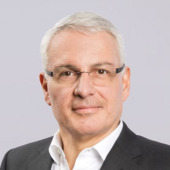
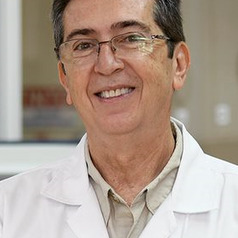
Bruno Lomonte
Emeritus Professor, Instituto Clodomiro Picado, Universidad de Costa Rica
Bruno Lomonte is an emeritus professor at the Instituto Clodomiro Picado, University of Costa Rica (ICP-UCR), which he joined in 1980.
His research is mainly focused on snake venoms, with particular interest on phospholipase A2 myotoxins, as well as on antivenoms, antibodies and diverse toxin inhibitors. From 2010 to 2023 held the position of coordinator of the Proteomics Laboratory at ICP-UCR.
A member of the International Society on Toxinology (IST) since 1986, Dr Lomonte has authored 360+ research articles and book chapters, and serves as editorial board or reviewer for several specialized journals on toxinology and proteomics.
Less ![]()
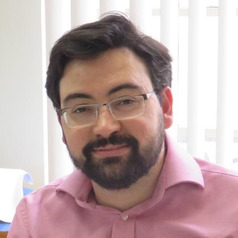
Bruno Luciano
MSCA Postdoctoral Fellow, Université Libre de Bruxelles (ULB)
Dr Bruno Theodoro Luciano is a MSCA Postdoctoral Fellow at ULB, affiliated to the Dept of Research and Studies in International Politics (REPI) and the Institute of European Studies (IEE). PhD in Political Science and International Studies (University of Birmingham, UK), MA and BA in International Relations (University of Brasília, Brazil). Co-Editor of the journal Contemporary European Politics. His MSCA Cofund postdoctoral research at the Université libre de Bruxelles focuses on the political developments of the European Union-Latin America and Caribbean relations, examining their inter-governmental and inter-parliamentary dimensions. In addition to this primary line of research, he is also interested in inter-regionalism and comparative regionalism in Europe, South America and Africa, with focus on the agenda of trade, democracy protection, civil society participation, and parliamentary diplomacy. Author of the book Parliamentary Agency and Regional Integration in Europe and Beyond (Routledge/UACES Contemporary European Studies series). Some of his research outputs have appeared in outlets such as Journal of Common Market Studies, Journal of European Integration, Global Studies Quarterly, and Parliamentary Affairs.
Less ![]()
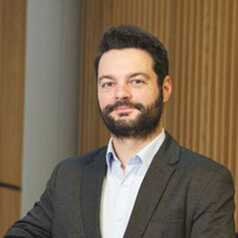
Bruno Schivinski
Senior Lecturer - Advertising, RMIT University
DR. BRUNO SCHIVINSKI, Ph.D., MSc, BSC, FRSS, FHEA is a sociologist and Senior Lecturer in Advertising at RMIT University, Australia. He consults for scientific institutions such as the Polish Ministry of Science and Higher Education (MNiSW) and the National Science Centre (NCN) in Poland, the video game industry, online service providers, and websites. Dr. Schivinski is Associate Editor for SAGE Open and the Central European Management Journal. Dr. Schivinski specializes in quantitative research methods with a focus on multivariate data analysis and generalization methods. His latest work can be found in the Journal of Business Research, Journal of Advertising Research, Industrial Marketing Management, Journal of Strategic Marketing, Event Management, Journal of Clinical Medicine, and Addictive Behaviors Reports.
His personal website: https://brunoschivinski.wordpress.com/
Less ![]()
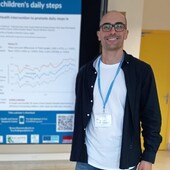
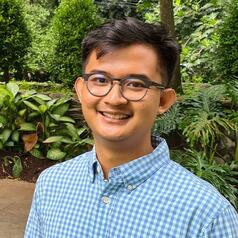
Brurce Muhammad Mecca
Senior Analyst, Climateworks Centre
Brurce is currently Senior Analyst at Climateworks Centre, a think tank under the Monash Sustainable Development Institute, Australia. With a strong background in environmental science and public policy and regional expertise across Indonesia and Southeast Asia, he contributes expertise in mobilizing investments for climate projects such as nature-based solutions and decentralized renewable energy. Passionate about social justice, he is also experienced in advocating for oversight systems that ensure the environmental and social integrity of investments across the financial systems and carbon markets.
Brurce graduated with a Master’s in Environmental Science from Yale University School of the Environment and a Bachelor’s in Environmental Engineering from Institut Teknologi Bandung.
Less ![]()
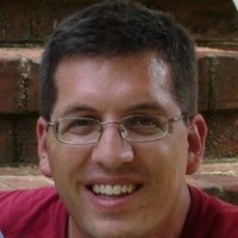
Bryan Clair
Dr. Clair's research areas include topology and graph theory. He has been a faculty member at Saint Louis University since 2000.
Less ![]()
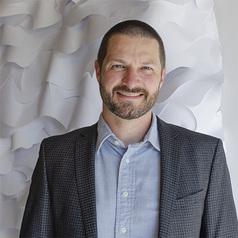
Bryan Dale
Assistant Professor, Department of Environment and Geography, Bishop's University
I am an Assistant Professor in the Department of Environment and Geography at Bishop's University, in Sherbrooke, Quebec.
I completed my PhD in Human Geography with a specialization in Environmental Studies from the University of Toronto’s Department of Geography & Planning. I also completed a postdoctoral fellowship with the Culinaria Research Centre at the University of Toronto Scarborough before joining Bishop’s.
My research interests include: food sovereignty, agroecology, climate change, environmental justice, social movements, agriculture, food security, labour and equality in the food system, urban political ecology, and cooperatives and other alternative economic initiatives (especially in food and farming).
I have published in journals such as Agroecology and Sustainable Food Systems, The Journal of Peasant Studies, and Agriculture and Human Values.
Less ![]()
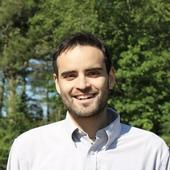
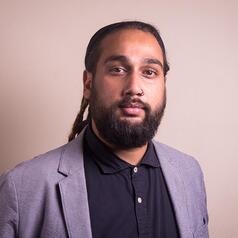
Bryan Khan
Senior Researcher in Law and Economics, Università di Torino
Bryan Khan is an educator and researcher affiliated with the University of Turin, the Nexa Center for Internet and Society, and the University of the West Indies. He holds BSc and MSc degrees in Economics, an LLM in Intellectual Property Law from the University of Turin, and a PhD in Law and Economics from Erasmus University Rotterdam.
He is the Assistant Director of the LLM in Intellectual Property Law co-organised by the University of Turin and the World Intellectual Property Organisation (WIPO), where he lectures on various topics in intellectual property law. He is also a course instructor for the WIPO-Harvard course ‘PatentX: Patent Law and Global Public Health’, and guest lecturers at a number of different institutions.
Bryan has extensive experience in the fields of economic development, the creative industries, telecommunication and broadcasting regulation, and intellectual property law. As a senior legal researcher at the University of Turin, he also works on various research projects in the field of digital copyright law and trade secrets. His broader research areas include the role of social norms in copyright law, the political economy of international intellectual property law, and Caribbean development.
Less ![]()
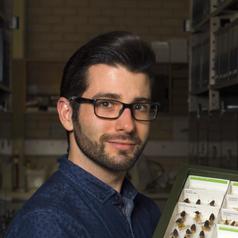
Bryan Lessard
Postdoctoral Research Fellow, CSIRO
Dr Bryan Lessard was first introduced to the curious world of flies during his undergraduate studies at the University of Wollongong, learning about the behaviour, classification and applications of the winged insects to forensic entomology. With his interest peaked, he enrolled in a PhD at the Australian National University in Canberra to continue his research on flies, this time describing over 18 species new to science and using DNA to solve the mystery behind the evolution of gondwanan horse flies. In the hopes of generating buzz in taxonomy, the science of naming and classifying organisms, he described a horse fly with a golden abdomen after the performer Beyoncé, 'Plinthina beyonceae'. This “bootylicious” ambassador for biodiversity became a viral sensation and sparked a global conversation on the importance of flies. Dr Lessard now works as a Postdoctoral Fellow at the Australian National Insect Collection at CSIRO in Canberra. Here he continues to research the evolution of soldier flies, most famous for the black soldier fly 'Hermetia illucens' that powers compost bins and could become the next superfood of the 21st century.
Less ![]()
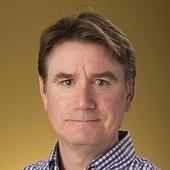
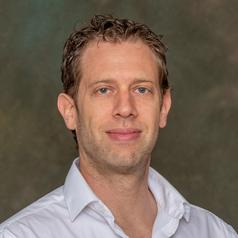
Bryan Smith
Associate Professor of Biomedical Engineering, Michigan State University
Bryan R. Smith is an Associate Professor of Biomedical Engineering within the Engineering School, and a member of the Institute for Quantitative Health Science and Engineering. His lab blends engineering, chemistry, biology, physics, and medicine to develop new imaging and therapeutic approaches. He is developing novel nanotechnology-based strategies to harness the power of the immune system, creating novel diagnostic imaging and therapeutic agents for diseases including cancer, atherosclerosis, and neurodegeneration. Recently, Dr. Smith moved to MSU from Stanford University.
Less ![]()
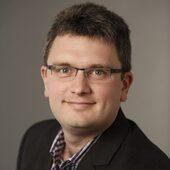
Bryan Tysinger
Assistant Professor of Health Policy and Management, University of Southern California
Less ![]()
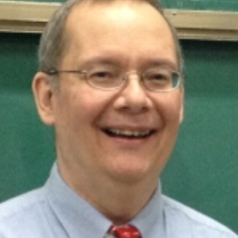
Bryan W. Van Norden
Professor of Chinese Thought and History, Vassar College
Bryan W. Van Norden is a leading expert on Chinese thought. In addition to being a prolific author and translator, he has been praised as one of the 300 best college or university professors in the US by the Princeton Review. Prof. Van Norden teaches at Vassar College, and has also lectured and held visiting positions at leading universities in China. He is available for presentations, articles, or consultations on Chinese history, philosophy, and current affairs, including but not limited to Confucianism, Daoism (Taoism), Buddhism, and their contemporary relevance.
Less ![]()
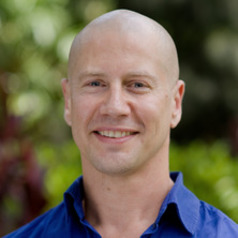
Bryan G. Fry
Professor of Toxicology, School of the Environment, The University of Queensland
I head the Adaptive Biotoxicology Lab at the University of Queensland, which studies two broad areas of toxicology: how divergent evolution of venom systems results in differential effects upon human health and variable response to antivenom treatments; and the ecotoxicological effects of endocrine disrupting oil spill metals upon the health of wildlife and indigenous communities within the Amazonian ecosystem.
I have long studied the multifaceted roles of venoms in nature, from their employment in predation and defense to their use as tools for interspecies competition. Despite their critical roles and unique properties, our comprehension of venom systems' evolutionary trajectories remains in its infancy. Advancing our understanding of venom evolution necessitates an appreciation for the rich biochemical, ecological, morphological, and pharmacological diversity that characterizes venoms and their delivery mechanisms. A pivotal obstacle in this field has been the limited taxonomic breadth of species studied, leaving vast arrays of venomous species unexplored. My research endeavors are intrinsically transdisciplinary, synthesizing ecological, evolutionary biology, and functional genomics methodologies to decipher the evolution of venom systems. This includes pioneering work on the Komodo Dragon's venom, known for its potent hypotensive and anticoagulant effects, and the investigation of Antarctic octopus venoms, which exhibit unique adaptations to extreme temperatures.
I have recently expanded my laboratory's research ventures into the realm of ecotoxicology, specifically examining the repercussions of oil spill-related metals on Amazonian wildlife and the health of indigenous communities reliant upon these ecosystems for their food. These endocrine-disrupting contaminants, prevalent in oil spill sites, pose significant threats not only to the physiological integrity of local fauna but also to the health and traditions of indigenous populations whose lifestyles are closely interwoven with their natural surroundings. Through a concerted effort that bridges fieldwork, laboratory analysis, and community engagement, my research now seeks to uncover the impact of these pollutants on biological systems and contribute to the development of strategies that safeguard both wildlife conservation and public health.
Less ![]()
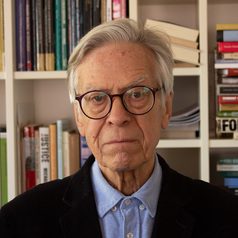
Bryan Stanley Turner
Professor of Sociology, Australian Catholic University
My BA and PhD were in sociology; the two doctor of letters degrees are in recognition of contributions to the discipline
Less ![]()
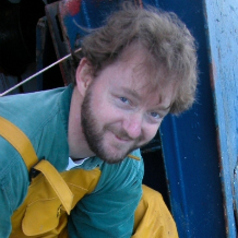
Bryce Stewart
Bryce is a marine ecologist and fisheries biologist whose work has ranged from temperate estuaries to tropical coral reefs and the deep-sea. The central thread in his research has been to gain an increased understanding of the factors regulating marine populations and communities so as to ensure their sustainable utilisation. His work on deep-sea fishes was among the first to demonstrate their extreme longevity, and on coral reefs he provided new evidence for mechanisms of community regulation of prey fish by predators. More recently his focus has been on how to improve the management of fisheries through the use of predictive recruitment models, marine protected areas and stock enhancement. Bryce has also been especially active in promoting the sale and consumption of sustainable seafood by working with everyone from government ministers to fishermen, restaurants and supermarket chains.
Less ![]()
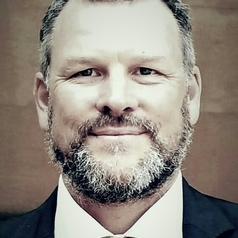
Bryn Hubbard
Professor of Glaciology, Aberystwyth University
2022- Associate Dean for Research, Faculty of Earth and Life Sciences
2020-2022 Director of Research, Department of Geography & Earth Sciences, Aberystwyth University.
2013 Director of Research, Institute of Geography, History, Politics and Psychology, Aberystwyth University.
2011 Director of Research, Institute of Geography and Earth Sciences, Aberystwyth University.
2011 Professor, Institute of Geography and Earth Sciences, Aberystwyth University.
2009 Director of the Centre for Glaciology, Institute of Geography and Earth Sciences, Aberystwyth University.
2005-2011 Reader in Glaciology. Centre for Glaciology, Institute of Geography and Earth Sciences, UW Aberystwyth.
2001-2004 Senior Lecturer in Glaciology. Centre for Glaciology, Institute of Geography and Earth Sciences, UW Aberystwyth.
1994-2000 Lecturer in Glaciology. Centre for Glaciology, Institute of Geography and Earth Sciences, UW Aberystwyth.
1992-1994 Post-doctoral Research Associate. Department of Geography, University of Cambridge. ('Water storage, drainage evolution and water quality in Alpine glacial environments').
1988-1992 Ph.D. Glaciology. Fitzwilliam College and Department of Geography, University of Cambridge ('Basal ice facies and their formation in the western Alps').
1983-1986 B.A. Geography (First Class). Christ Church and School of Geography, University of Oxford.
Less ![]()
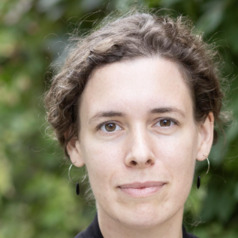
Bryna Godar
Staff Attorney, State Democracy Research Initiative, University of Wisconsin Law School, University of Wisconsin-Madison
Bryna Godar is a Staff Attorney with the State Democracy Research Initiative at the University of Wisconsin Law School. Bryna joined the Initiative following a clerkship with Judge Jeffrey R. Howard on the U.S. Court of Appeals for the First Circuit. She was previously a Legal Fellow with the Immigrant Law Center of Minnesota in St. Paul, Minnesota.
Bryna graduated magna cum laude from Harvard Law School, where she was Vice President/Treasurer of Harvard Law Review. Prior to law school, she worked as a journalist in Wisconsin and Minnesota, reporting primarily on local and state government.
Less ![]()
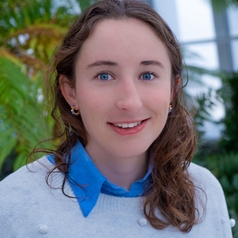
Brynde Kreft
Research assistant at The Mind and Behaviour Research Group, University of Oxford
I have four years of experience designing, managing and implementing academic tests of economic development policy. I have a Mater's in Applied Economics from the University of Cape Town and a Master's in Economics for Development from Oxford University.
Less ![]()
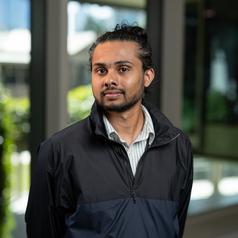
Buddhi Wijesiri
Research Associate in Water and Environmental Engineering, Queensland University of Technology
I aspire to ensure access to adequate and safe water for ever-increasing populations. The fundamental purpose of my research is safeguarding water resources by mitigating water pollution. As such, I create knowledge and mathematical tools to understand the terrestrial processes that degrade water resources, essential for designing effective pollution mitigation measures.
I possess expertise and experience in applying physically-based and statistical modelling techniques in multiple computing platforms together with locally-sourced field data and data extracted from global databases to understand mechanisms of hydrological and pollution processes. In particular, I have successfully applied Bayesian Networks (BNs) and geospatial analysis to understand complex non-linear relationships among variables that determine pollutant behaviours in water environments.
My long-term research investigates how environmental changes and urbanisation influence degradation of water resources.
Less ![]()
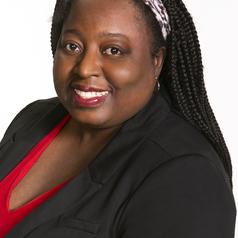
Bukola Salami
Professor, Department of Community Health Sciences, University of Calgary
Professor Bukola Salami currently holds the rank of Full Professor in the Department of Community Health Sciences, Cumming School of Medicine, University of Calgary. She is also Scientific Director for Equity, Diversity and Inclusion at the Alberta Childrens Hospital Research Institute and is a member of the Obrien Institute for Public Health. Professor Salami’s research program focuses on policies and practices shaping migrant health as well as Black people’s health. She founded and leads the African Child and Youth Migration Network, a network of 42 scholars from four continents. She led the establishment of the Institute for Intersectional Studies at the University of Alberta. In 2020, she founded the Black Youth Mentorship and Leadership Program. Her work on Black youth mental health informed the creation of the first mental health clinic for Black Canadians in Western Canada.
Less ![]()
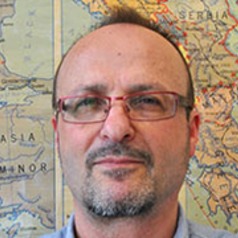
Bulent Gökay
Professor of International Relations, Keele University
My research and publications cover two interrelated strands- the first relates to the social and political history of the post-WWI settlements; and the second to contemporary issues and political economy of resources in Eurasia. Through my work I have set out to marry macro historical analysis with contemporary micro dynamics of political economy by employing a 'globalist' perspective.
Since the outbreak of global financial and economic crisis in 2007-08, I have been writing on the historical/ long-term origins of the crisis and the overall structure of the global economy, using a particular perspective which can be described as the ‘global shift model’. My recent book, The Fall of the US Empire: Global Fault-Lines and the Shifting Imperial Order (co-authored with Vassilis Fouskas), Pluto Press, 2012, is a good example to this, analysing the changing balance of global power, the hegemonic shift from the global "West" to the global "East/ South". The decline of the US hegemony, the rise of China and other Emerging Powers, and the nature of contemporary global economy are issues of paramount importance for understanding HOW THE WORLD WORKS, the current crisis and Where Do We Go from Here.
I joined Keele in 1996 from Wolfson College, Cambridge, where I had been a postdoctoral Research Fellow for the previous three years. Before coming to Keele, I taught at the Birkbeck College-London, University of North London, and at the University of Cambridge. I am the founder and the Managing Editor of the Journal of Global Faultlines.
My books include The Politics of Caspian Oil by Palgrave in 2001; Eastern Europe Since 1970 by Longman in 2005 (second edition in 2006), The New American Imperialism: Bush's War on Terror and Blood for Oil, co-authored with Vassilis K. Fouskas, published by Greenwood Publishing Group in 2005; SOVIET EASTERN POLICY AND TURKEY, 1920-1991 by Routledge in 2006, Politics of Oil – A Survey, by Routledge in 2006; Unholy Alliance: Muslims and Communists in Post-Transition States (with Ben Fowkes) by Routledge, 2011; The Fall of the US Empire. , Global Fault-Lines and the Shifting Imperial Order, co-authored with Vassilis K. Fouskas, published by Pluto Press, June 2012. (GlobalFaultlines- interview)
Less ![]()
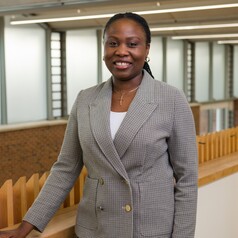
Bunmi Omorotionmwan
Lecturer in Microbiology, Nottingham Trent University
My research background is the genetic engineering of Clostridium for industrial and clinical applications. These include the generation of advanced genetic tools to extend product range and increase solvent productivity in Clostridium acetobutylicum as well as in the development of a modular spore vaccine platform.
My pedagogical research interests explore how new teaching innovations and inclusive assessments can be used to narrow engagement and attainment gaps among student groups.
I had my BSc (First Class) in Microbiology from the University of Benin, Nigeria and MSc (with Distinction) in Food Production Management from the University of Nottingham, UK. I completed my PhD in Molecular Microbiology at the University of Nottingham in 2020. Following this, I worked as a Postdoctoral Research Fellow at the Synthetic Biology Research Centre (SBRC), University of Nottingham on the metabolic engineering of Clostridium acetobutylicum for improved biofuel production and afterwards in the development of a spore vaccine platform using Clostridium chassis.
Prior to joining NTU, I worked as a lecturer in the Department of Microbiology at the University of Benin, Nigeria.
Less ![]()
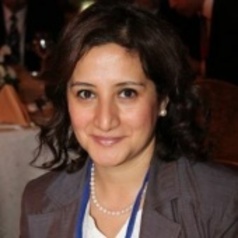
Burcak Basbug Erkan
Associate Professor at Department of Statistics, Middle East Technical University
Burcak Erkan is an Associate Professor of Statistics at the Middle East Technical University, and served as Director, Center for Disaster Management between 2008 and 2018. She was the Course Director of MSc Disaster Management and Resilience at Coventry University, UK between 2019 and 2020. She has 24 years of global experience on disaster risk management, disaster risk reduction, disaster risk financing, insurance, resilience, disaster and development, policy development, emergency management, humanitarian crisis, statistical analysis.
Less ![]()
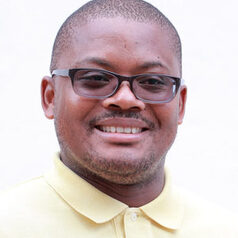
Busani Ngcaweni
Visiting Adjunct Professor, School of Governance, University of the Witwatersrand
Busani Ngcaweni Bio
Busani Ngcaweni is the Director-General of the National School of Government since March 2020. Before that he was the Head of Policy and Research in The Presidency. He was previously Chief of Staff (Deputy Director-General) to President and Deputy President Cyril Ramaphosa since 2014. He also served as Chief of Staff to Deputy Presidents Kgalema Motlanthe, Baleka Mbete and Phumzile Mlambo-Ngcuka. He joined the Policy Unit in The Presidency in 2005 as Senior Policy Analyst, having been Divisional Director at Umsobomvu Youth Fund. He has balanced policy development, programme implementation, institution building and scholarly research to shape his application of state craft. Ngcaweni is a graduate of the University of Durban-Westville, the University of Natal, University of South Africa and Wits University. He is DPhil Research Fellow in Economics at the Chinese Academy of Social Sciences. He is Senior Research Associate at the University of Johannesburg and Visiting Adjunct Professor at Wits School of Governance.
His latest publications include:
Ngcaweni, B. (2024). Statecraft and National Development: Critical Insights from South Africa and Beyond. Jacana Media. Johannesburg. Forthcoming in March 2024.
Ngcaweni, B. (eds.), (2024). Liberation Diaries Volume 2: Reflections on 30 Years of Democracy in South Africa. Jacana Media. Johannesburg. Forthcoming in May 2024.
Ngoma, A. and Ngcaweni, B. (2023). Binding Constraints to Decision Making on Growth: Perspectives from Heads of Departments. In Mohamed, S., Ngoma, A. and Baloyi B. (eds.). The Evolving Structure of the South Africa’s Economy: Faultlines and Futures. Mapungubwe Institute. Johannesburg.
Ngcaweni, B. (2023). Young People, Social Media and Exposure to STIs: A Semi-ethnographic Experiment. In Maja, B. and Ngcaweni, B. (eds.). Youth Development in South Africa: Harnessing the Demographic Dividend: Diverse Perspectives on Creating a Fairer Society. Emerald Publishing Limited. Bingley.
Ngcaweni, B. and Mayimele, B. (2022). BRICS: Building Blocks Towards a Pluriversal World. Journal of Latin American Studies. Vol. 44(5).
Ndlovu-Gatsheni, S.J. and Ngcaweni, B. (eds.), (2022). The Contested Idea of South Africa. Routledge. London.
Qobo, M. and Ngcaweni, B. (2021). Professionalising the South African Civil Service: in Retrospect and the Road Ahead. New Agenda: South African Journal of Social and Economic Policy. Issue 82.
Ngcaweni, B. and Nkate, J. (2021). An Appraisal of China-Africa Cooperation for Economic Development and Poverty Reduction. In Poverty Reduction in China: Achievements, Experience and International Cooperation, Wei, H. and Wang, L. (eds.). Social Sciences Academic Press. Beijing.
Ngcaweni, B. (2020). Leaping Forward: Preliminary Thoughts on COVID-19 and Shifts in Public Administration. Journal of Public Administration. Vol. 55(4).
Ngcaweni, B. and Ndlovu-Gatsheni, S.J. (eds.), (2018). Nelson R. Mandela: Decolonial Ethics of Liberation and Servant Leadership. Africa World Press. New Jersey.
Ngcaweni, W.M. and Ngcaweni, B. (eds.), (2018). We Are No Longer at Ease: The Struggle for #FeesMustFall. Jacana Media. Johannesburg.
Qobo, M., and Ngcaweni, B. (2021), Professionalising the South African Civil Service: in Retrospect and the Road Ahead, New Agenda: South African Journal of Social and Economic Policy, Issue 82
Less ![]()
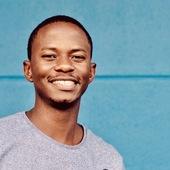
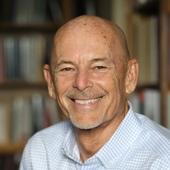
Byron R. Johnson
Distinguished Professor of the Social Sciences and Director of the Institute for Studies of Religion, Baylor University
Less ![]()
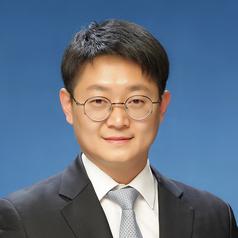
Byung Hwa Lim
Associate Professor, SKK Business School, Department of FinTech, Sungkyunkwan University
Byung Hwa Lim is an Associate Professor of Finance at SKK Business School and the Department of FinTech at Sungkyunkwan University, South Korea. He holds a Ph.D. in Mathematical Science from KAIST and has previously served at The University of Suwon and Korea Economic Research Institution (KERI).
Professor Lim’s research interests include portfolio optimization, asset pricing, market microstructure, blockchain and crypto-assets, fintech, and machine learning in finance. Lim's works have been published in various economics, business, and finance journals. Lim is currently working on individual investors' investment behavior in the cryptocurrency market and examining the reinforcement learning method in portfolio management.
He teaches courses on blockchain applications, credit risk modeling, and investments, blending theoretical knowledge with practical insights.
Less ![]()
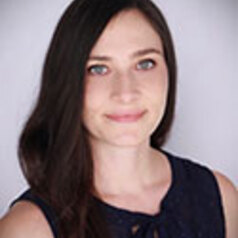
C. Clare Strange
Assistant Research Professor of Criminology and Justice Studies, Drexel University
Dr. Clare Strange is an Assistant Research Professor in the Department of Criminology and Justice Studies at Drexel University and is affiliated with the Center for Public Policy as well as the Healthcare Approaches to Justice Collaborative. Her research centers on the intersection of justice and public health and includes (for example) projects relating to legal financial obligations, court-related policy and programming, medication-assisted therapies for opioid use disorder, and hospital-based violence intervention. Dr. Strange utilizes quantitative, qualitative, and mixed methodologies and often draws upon the implementation science literature.
Dr. Strange currently manages a randomized controlled trial of a court fines and fees relief intervention in Philadelphia that is sponsored by Arnold Ventures. Other sponsored research includes the National Institute of Justice (NIJ) W.E.B. Du Bois Fellowship ($730,000). Beginning in 2024, Dr. Strange (Principal Investigator) and a multidisciplinary team of collaborators will conduct a five-year process and impact evaluation of Pennsylvania’s 8th edition sentencing guidelines and their impacts on racial and ethnic disparities in sentencing outcomes.
Dr. Strange’s work is informed by her early career as a social worker in both domestic and international correctional, reentry, and medical settings. As such, she aims to produce transdisciplinary research with strong programmatic and policy applications for academic, practitioner, and policymaker audiences alike.
Less ![]()
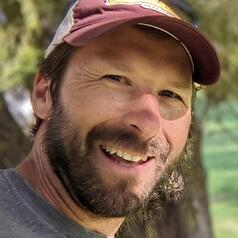
C. Tyler DesRoches
Associate Professor of Sustainability and Human Well-Being and Associate Professor of Philosophy, Arizona State University
C. Tyler DesRoches is Associate Professor of Sustainability and Human Well-Being at the School of Sustainability and Associate Professor of Philosophy at the School of Historical, Philosophical and Religious Studies at Arizona State University. Tyler is a former President of the International Network for Economic Method. He has a PhD in philosophy from the University of British Columbia, an MA in Philosophy and Economics from Erasmus University Rotterdam, and an MA in Economics from the University of Victoria. His areas of specialization include the history and philosophy of economics, human well-being and sustainability. Formerly, Tyler was a tree planter in northern British Columbia, wildfire fighter in northern Alberta, and Forest Economist with Natural Resources Canada. He was also a Sessional Lecturer in the Department of Philosophy and Vancouver School of Economics at the University of British Columbia, a Founding Editor of the Erasmus Journal for Philosophy and Economics, and a co-Founder of the Canadian Society for Environmental Philosophy. Tyler has published articles in many peer-reviewed journals, including the Australasian Journal of Philosophy, Journal of Applied Philosophy, History of Political Economy, Synthese and Proceedings of the National Academy of Sciences. Tyler's first book (edited with Byron Williston and Frank Jankunis) is entitled, Canadian Environmental Philosophy (2019). His second book, a monograph, is entitled, Sustainability without Sacrifice: A Philosophical Analysis of Human Well-Being and Consumption (under contract with Oxford University Press).
Less ![]()
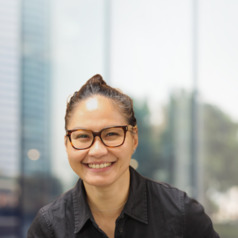
C.J. Cabilan
Adjunct Lecturer, The University of Queensland
I am a PhD-qualified registered nurse who studied occupational violence extensively, particularly in the emergency setting (h=15).
I am an adjunct lecturer at The University of Queensland School of Nursing, Midwifery and Social Work.
I currently serve as the Director of Occupational Violence Prevention and Management for Canberra Health Services.
Less ![]()
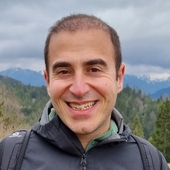
Çağatay Yıldız
Postdoctoral Researcher, Cluster of Excellence "Machine Learning", University of Tübingen
Less ![]()
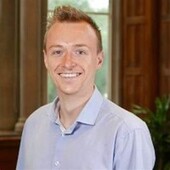
Cahal Moran
Visiting Fellow in the Department of Psychological and Behavioural Science, London School of Economics and Political Science
Less ![]()
- Market Data





















